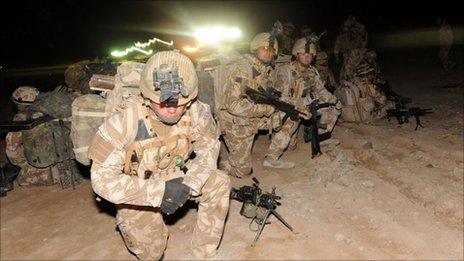Afghanistan service: Doug Beattie reflects on war tours of duty
- Published
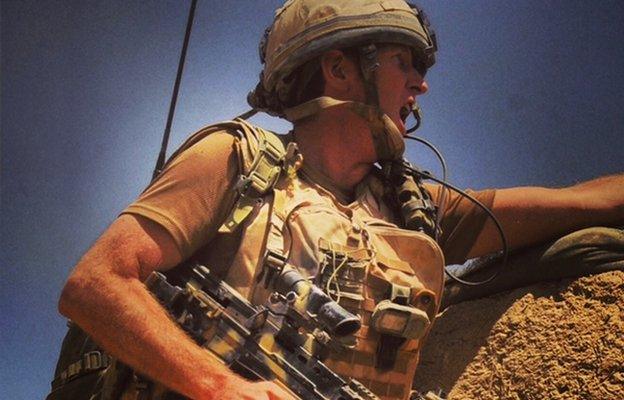
Doug Beattie served three tours of duty in Afghanistan
A former army captain who served in Afghanistan has said he never thought, as a veteran soldier, that he would have to kill a man in face-to-face combat until he went into battle there.
Doug Beattie served three tours in Afghanistan in 2006, 2008 and 2010-11. Originally from Portadown in Northern Ireland, he became a soldier in 1982
Mr Beattie was reflecting on his time in Afghanistan ahead of a service in St Paul's Cathedral attended by the Queen on Friday to mark the end of combat operations in the country.
The former Royal Irish Regiment soldier said while many believed the conflict was about dropping bombs on an unseen enemy, the truth was radically different.
"War is brutal, it really is carnage - it's medieval sometimes," he said.
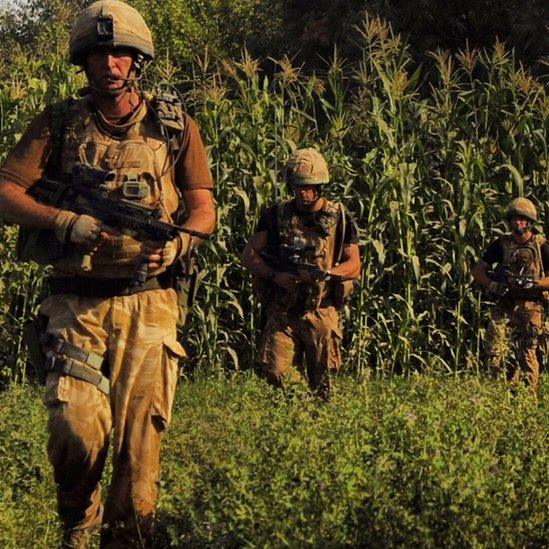
He says the reality of war was vastly different from some people's perceptions
"I think people sitting back in their living rooms, or in pubs and clubs, think we live in a high-tech world where soldiers don't really see the enemy they're fighting.
"What I found in 2006 when I was involved in a 14-day battle in Garmsir is that this is about man against man.
"I never really thought that at the age of 40 I would have to thrust a bayonet through another person and yet I had to do that in September 2006 and I watched a man die at the end of my rifle."
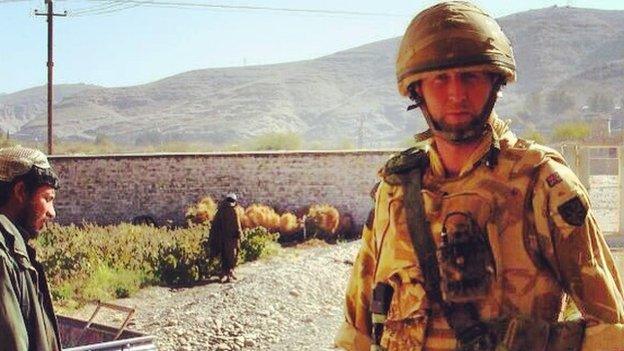
Doug Beattie says the Army was learning as it went along
Another experience that brought home the reality of war for him was the death of a young Afghan girl who had been fatally injured by a coalition mortar bomb.
"When you talk about what are your feelings at the end of a conflict such as Afghanistan and you say to people I'm filled with great sadness, I'm filled with great pride, but I'm also filled with great shame," he said.
"That shame is because of people like that young Afghan girl who was carried to me - this beautiful little thing who was only six years of age whose skin had been punctured by British mortar bombs.
"We though we could help her, but sadly within 24 hours this girl was dead. Her name was Shabia, I will never forget that name, it's imprinted on me and it just reminds me of how brutal war is."
Training
He admits that after his first tour of duty in Afghanistan, adjusting to normal life when he returned home was difficult.
"I left the battlefield and within 24 or 48 hours, I was sitting at home having a glass of wine having had no decompression whatsoever," he said.
"I suddenly went into a mode where I was having problems dealing with what I had done and what I had seen."
He said that by his second and third tours, the army was better equipped to help people with the after-effects of conflict.
In terms of preparedness for what they would face in Afghanistan, he said: "We did receive a wide range of training and not just military training, but cultural training and political training so we had a degree of understanding of what was going on in Afghanistan and certainly Helmand Province.
"But I don't think we necessarily had that depth of knowledge that we really needed."
He added: "It made life difficult because you were learning as you went along."
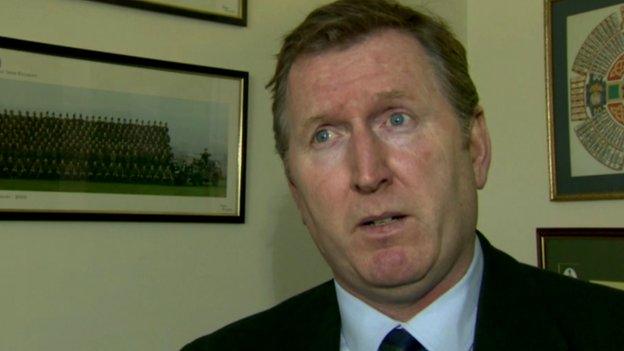
Doug Beattie said there had been a conflicting response to the Army's role in Afghanistan
Mr Beattie said while he had a complicated mixture of feelings about his combat duty in Afghanistan, he looked back on it with a sense of pride.
"We are proud of what we did, I am proud of what I did and more so, I'm proud of the young men and the young women who stood with me, some who will never return, some who returned with life-changing injuries, some with serious mental issues," he said.
However, he said he had found there was a conflicting response back home in Northern Ireland to the Army's role in Afghanistan.
"We cannot stand up united together with pride and say, 'this is what I've done' because part of this community will not allow us to do that," he said.
"It is difficult when you have those in the nationalist/republican community who say, 'You're a British soldier, you're a child murderer'.
"Then you have those in the unionist/loyalist community saying, 'No it doesn't matter what you did, you're a soldier and we'll support you'.
"The reality sits within me and that reality is the sense of sadness, that sense of shame, that sense of pride.
"I don't need anybody to tell me that I'm a child killer and I don't need anyone to tell me, 'I will support you regardless'."
- Published11 March 2015
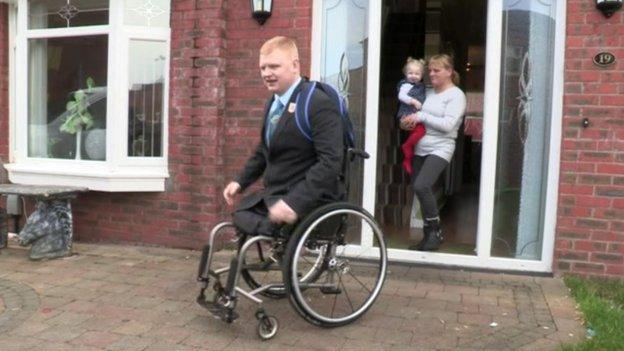
- Published30 April 2011
